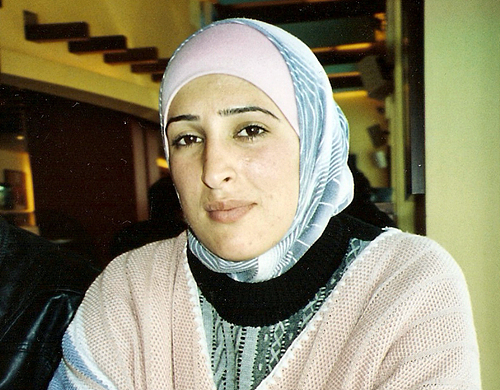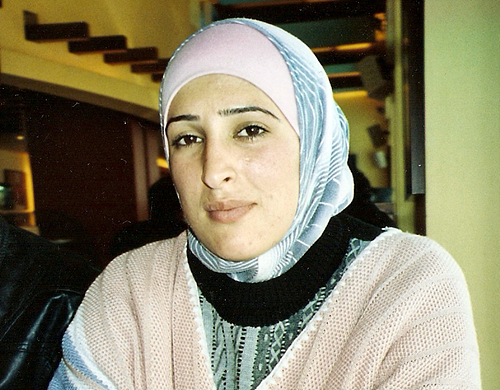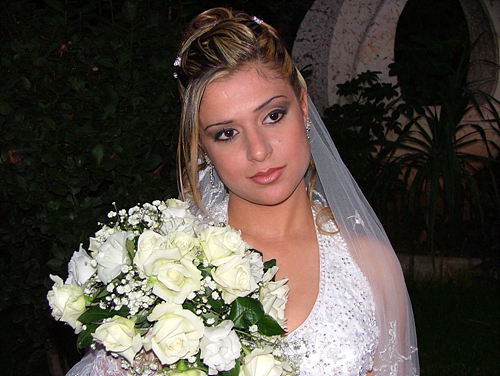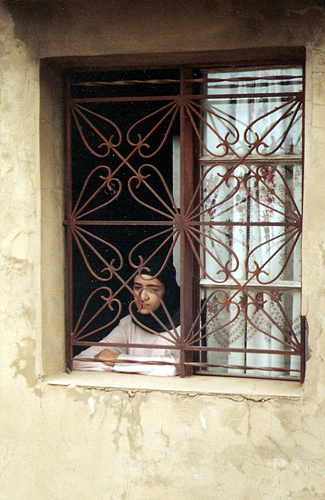11th(2009)
Not Like My Sister
Leyla Assaf-TENGROTH
- Sweden
- 2008
- 58min
- Beta, Digi-beta
- color
- Documentary
SYNOPSIS
It all started with little Rim, who became a star at age nine in Leyla Assaf-Tengroth´s hit movie “Freedom Gang”(1994). After Rim’s big success, she was able to go to school. But at age 13 she was forced into marriage, putting an end to her schooling and crushing her dreams. Rim´s little sister Dalida is uncommonly strong-willed and brave. She refuses to marry on her family´s terms. By the age of 16 she´s survived three attempts on her life by her father and his brothers.
Honor killing is an Islamic tradition wherein the husband or one of the family members kills a woman who has dishonored the family by committing adultery or loosing her virginity. Jordan has banned honor killings by law, but in the Islamic world, hundreds of women are still murdered in honor killings every year. Furthermore, a great many Islamic women are forced to marry against their will, and live without having the right to make their own life-decisions. Having known the Kerkatli family of a Syrian Muslim village for 15 years, the director tells about the marriages of three daughters from this big family of 10 daughters and 2 sons. The director had her first experiences with this family when her film Freedom Gang featured the family’s oldest daughter Rim, 9 years old at the time. This film was successful in Beirut; as a result, Rim could go to school and her dream was almost realized. However, her family forced her to get married at the age of thirteen; now 21 years old Rim, with 3 children, is leading a married life that is not very different from life in prison. The real heroin of this movie is the second daughter, Dalida. Like her sister Rim, Dalida is also ordered to get married by her uncles when she turns 13. However Dalida does not want to be like her sister so much so that she keeps resisting; by the age of 16 she’s survived three attempts on her life by her father and his brothers. Her rejection to forced marriage makes her look like a impure, promiscuous woman from the Islamist point of view. Her life becomes regarded as worthless. Meanwhile, there is a third daughter, Ramia. She turns 13. She is then married to her father’s cousin by force. She has a baby of her own at 14. Fortunately, during the 15 years, both the world and the family are changing side by side. (SIM Hye-kyong)
PROGRAM NOTE
Synopsis
It all started with little Rim, who became a star at age nine in Leyla Assaf-Tengroth´s hit movie “Freedom Gang”(1994). After Rim’s big success, she was able to go to school. But at age 13 she was forced into marriage, putting an end to her schooling and crushing her dreams. Rim´s little sister Dalida is uncommonly strong-willed and brave. She refuses to marry on her family´s terms. By the age of 16 she´s survived three attempts on her life by her father and his brothers.
Program Note
Honor killing is an Islamic tradition wherein the husband or one of the family members kills a woman who has dishonored the family by committing adultery or loosing her virginity. Jordan has banned honor killings by law, but in the Islamic world, hundreds of women are still murdered in honor killings every year. Furthermore, a great many Islamic women are forced to marry against their will, and live without having the right to make their own life-decisions. Having known the Kerkatli family of a Syrian Muslim village for 15 years, the director tells about the marriages of three daughters from this big family of 10 daughters and 2 sons. The director had her first experiences with this family when her film Freedom Gang featured the family’s oldest daughter Rim, 9 years old at the time. This film was successful in Beirut; as a result, Rim could go to school and her dream was almost realized. However, her family forced her to get married at the age of thirteen; now 21 years old Rim, with 3 children, is leading a married life that is not very different from life in prison. The real heroin of this movie is the second daughter, Dalida. Like her sister Rim, Dalida is also ordered to get married by her uncles when she turns 13. However Dalida does not want to be like her sister so much so that she keeps resisting; by the age of 16 she’s survived three attempts on her life by her father and his brothers. Her rejection to forced marriage makes her look like a impure, promiscuous woman from the Islamist point of view. Her life becomes regarded as worthless. Meanwhile, there is a third daughter, Ramia. She turns 13. She is then married to her father’s cousin by force. She has a baby of her own at 14. Fortunately, during the 15 years, both the world and the family are changing side by side. (SIM Hye-kyong)
Director
-
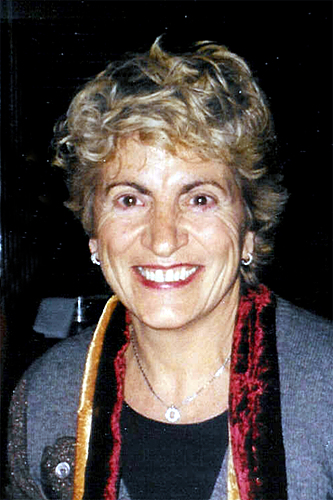
Leyla Assaf-TENGROTHLeyla Assaf-TENGROTH
Leyla is an award winning film and documentary director. Her films have been shown on Swedish Television, in several European countries as well as in the USA, Canada and Australia. She is Lebanese, and lives in Sweden since 1966. Perhaps her origin can explain her primary focus on third world countries. Her films often deal with sociopolitical problems, and environmental issues. They are known to reflect much engagement and insight. Leyla holds degrees in Art, Photography, Communication, Film History and Drama. She has own production company, Cadmos Film working closely with the Swedish Film Institute, and the Swedish Television among others.
Credit
- ProducerSVT- Sveriges Television
- Screenwriter VT- Sveriges Television
- Editor Kjell TUNEGÅRD
- Music Khaled Habib El KEBICH

